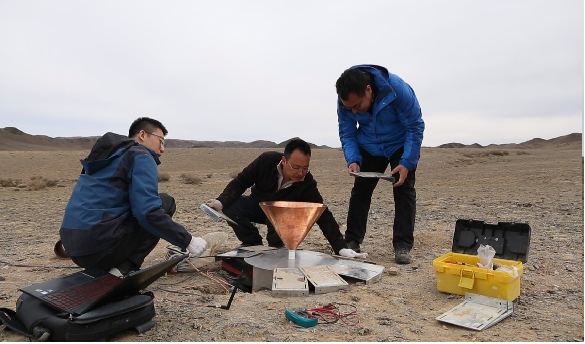Chinese astronomers search for cosmic dawn

Researchers from the National Astronomical Observatories of the Chinese Academy of Sciences prepare for tests to detect the cosmic dawn global spectrum signal. (Photo by Tian Tengshan/for chinadaily.com.cn)
Researchers from the National Astronomical Observatories of the Chinese Academy of Sciences (NAOC) went to an observation station in Barkol Kazakh autonomous county of the Xinjiang Uygur autonomous region on Sunday, preparing for China's first attempt to detect the cosmic dawn global spectrum signal, the observatory said.
From the Big Bang around 13.8 billion years ago, the universe burst onto the scene as a tiny but glowing inferno of energy. Immediately, it expanded and cooled, dimming into darkness, thereby ushering in a cosmic dark age. As the first stars and galaxies formed from electrons and protons coalescing into atoms about 12 billion years ago, the universe entered a period known as cosmic dawn, according to Chen Xuelei, a researcher with the NAOC.
It's a difficult task to detect the ultra-faint signature of this turning point in cosmic history. Chinese scientists have been paying attention to the frontier for many years, and in 2018, the CAS announced studies on the cosmic dawn global spectrum signal. Two years later, they worked out prototypes of the instruments necessary for detecting the signal.
Chen said the task requires instruments with exquisite sensitivity and an experimental plot with favorable electromagnetic environment.

Researchers from NAOC prepare for tests to detect the cosmic dawn global spectrum signal. (Photo by Tian Tengshan/for chinadaily.com.cn)

Researchers from NAOC prepare for tests to detect the cosmic dawn global spectrum signal. (Photo by Tian Tengshan/for chinadaily.com.cn)

Researchers from NAOC prepare for tests to detect the cosmic dawn global spectrum signal. (Photo by Tian Tengshan/for chinadaily.com.cn)